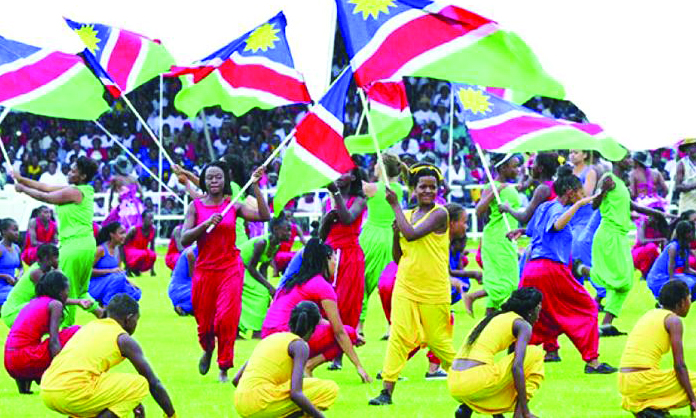Some Zambezi region residents say although there has been some developmental progress since independence 34 years ago, they are yet to see progress in areas such as youth employment and agriculture.
Zambezi region will be hosting the 34th Independence Day celebrations at Katima Mulilo tomorrow.
The region will be hosting this prestigious event themed, ‘A People United For Prosperity’ for the first time since independence, causing much excitement among residents eager to experience the celebrations.
The Namibian spoke to some residents on Monday, who reflected on the development that has taken place in the region since the country gained its independence on 21 March 1990.
The reactions of the residents were mixed, with some believing more could have been done and others believing the pace of development is adequate.
Resident Gift Ntelamo said the greatest challenge that he and many other youths are facing in an independent Namibia is the unemployment crisis, which the government needs to find a solution for as soon as possible.
“As an unemployed youth, I see no reason to find joy in celebrating Independence Day. I mean, can you imagine that I graduated about six years ago and I’m in the village without any employment. I am now planning to go back to university and study education, hoping that maybe I might get lucky and be employed as a teacher,” he said.
Ntelamo believes there is really no development in terms of road infrastructure in the informal settlements at Katima Mulilo.
Additionally, he said that even after independence, the town still has informal settlements without adequate water, electricity, or sewerage infrastructure.
Another resident, Josephine Nchindo, said she is grateful for the improved health services since independence, compared to what they had before.
“Especially in the maternity wards, the services provided to the mother and baby have improved. Patients are eating well and the hospital is clean. Therefore, we are very happy.”
Meanwhile, Kongola-based social activist Glen Shebo described development in the region as slow compared to other regions, especially with regards to road infrastructure.
He said seeing that the region is the gateway to central Africa, expansion should have been a priority as trucks cross through the respective regional borders daily.
“There is no functional green scheme in the region, despite the abundance of fertile land and water in the region. The region was supposed to have a fruit processing plant, seeing that mangoes were found in abundance in the region. If these projects are developed, it will alleviate the high rate of youth unemployment within the region.”
Zambezi regional governor Lawrence Sampofu, during a recent media briefing on the independence celebrations, noted that it is concerning that the Katima Mulilo District Hospital has not been upgraded to an intermediate hospital since independence.
He said, as a result, people are dying.
“Katima Mulilo District Hospital is very small to cater for the growing population demands. Our people are suffering, and we are losing a lot of lives during referrals to either Rundu, Oshakati or Windhoek. It is not that they are dying of the diseases, they are dying because of the exhaustion they are experiencing while being transferred. Therefore, we need an intermediate hospital and for our health centres to become district hospitals,” he said.
On a more positive note, Sampofu noted that since independence, out of 105 schools in the region, only eight are not electrified.
Sampofu said there were no electrified schools before independence and the government has worked tirelessly to ensure that 97 schools are electrified.
He further highlighted how the Katima Mulilo border post is crucial to the economic development of the region, saying that it brings in buying power from Zambia.
“People are coming through the Katima Mulilo border to buy items in bulk, ranging from food to furniture. This buying power has been enhanced by the border being open on a 24-hour basis,” he said.
Stay informed with The Namibian – your source for credible journalism. Get in-depth reporting and opinions for
only N$85 a month. Invest in journalism, invest in democracy –
Subscribe Now!






